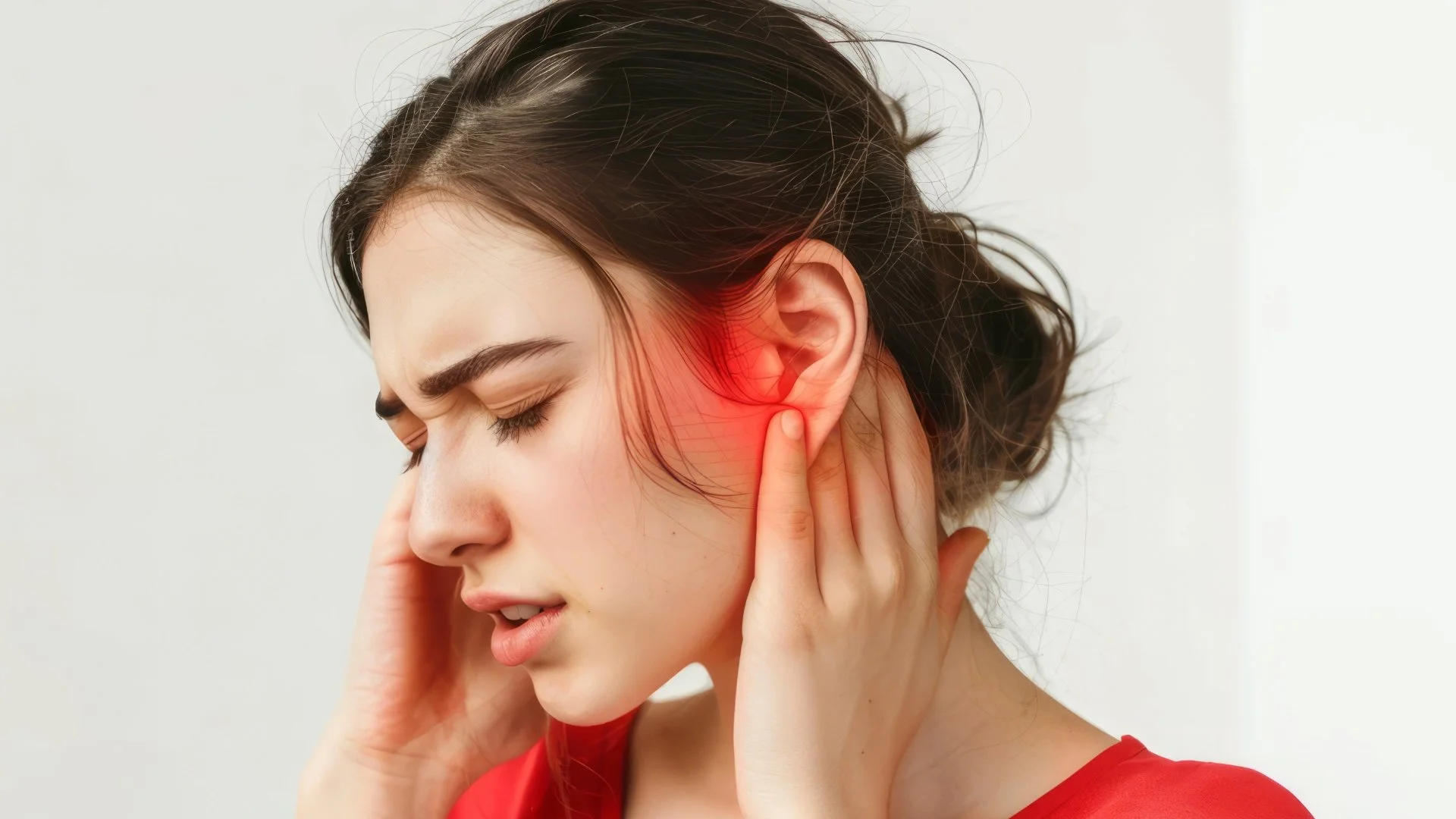Meniere’s Disease, what is it and what can you do about it?
This past year, I was diagnosed with Meniere’s Disease. Even though I’d heard of it—and even worked for an ENT—I never imagined it would affect me. When I saw patients come in with extreme vertigo, I felt deeply for them. I had no idea just how intense those episodes really were.
So when my first episode hit, I assumed it was an allergic reaction. The pressure around my eyes, the strange environmental shifts—it all felt surreal. I kept adjusting my glasses, thinking the lenses were warped. Then came the ringing in my ear. Louder than ever. At that point, I’d already been dealing with ear pressure and intermittent tinnitus for a month. I’d taken multiple antibiotics (after a dog attack), and none of them helped.
After a series of tests—including an MRI to rule out a benign tumor of the auditory nerve—I was left in limbo. My ENT suspected a viral inner ear attack. I wouldn’t experience a full episode again for six months, but something always felt off: balance issues, brief visual swirls, persistent dizziness.
After my second major episode, the diagnosis was official: Meniere’s Disease.
What is Meniere’s Disease, Really?
The Mayo Clinic defines it simply: “an inner ear problem that causes dizzy spells and hearing loss.”
But if you’ve lived it? You know that explanation doesn’t even scratch the surface.
Fun fact: It’s believed that Van Gogh had Meniere’s. Every time I look at his art now, I see a swirling episode on canvas. I understand why he may have cut off his ear—but please don’t. That won’t fix it. The issue isn’t your outer ear. (Van Gogh didn’t know that.)
Meniere’s typically affects people between 40–60, but it can occur at any age. It impacts the inner ear and comes with a variety of unpredictable symptoms.
Common Symptoms of Meniere’s Disease:
1. Ringing in the Affected Ear (Tinnitus)
Mine started intermittently. Now it’s constant. It varies in tone and volume. Noise makes it worse—so do caffeine and some OTC meds. I also experience hyperacusis (sensitivity to sound), which amplifies everything.
2. Hearing Loss
My hearing comes and goes—but over time, it’s become significantly diminished. I now rely on captions and lip reading more than I’d like to admit. Sometimes, I just want to yell, “I’m too young for this!”
3. Dizzy Spells & Vertigo Attacks
Have you ever ridden one of those tea cup rides at a theme park and immediately regretted it? Or gotten a little too tipsy and watched the room spin around you? Imagine that—but with no off switch. That’s vertigo.
During my worst episode, it felt like gravity was pulling me to the floor. The world was turning visually. I vomited repeatedly. It lasted for hours. Since then, I’ve had more episodes, but now I have emergency meds—and they help calm things a little faster.
4. Ear Fullness or Pressure
It feels like an ear infection… or as if your ear is underwater and can't pop. For me, the pressure travels into my face and jaw. Sometimes my lymph nodes feel sore too. This pressure often warns me a severe episode is coming.
Additional Symptoms (That No One Talks About)
I also experience:
Neck and shoulder pain (on the same side as my affected ear)
Headaches during or before episodes
Oddly enough, these sensations relieve themselves after a full attack, which helps me know when one is over.
What Causes Meniere’s Disease?
Short answer: We don’t know.
But here’s what experts like MSN and Mayo Clinic believe may play a role:
Improper fluid drainage or structural abnormalities
Autoimmune reactions
Viral infections
Migraines
Allergies
Genetics
Chronic stress
Cervical spine or jaw issues
Past head/neck injuries
Treatment Options
There’s no cure, but there are ways to manage symptoms:
Lifestyle & Medical Therapy:
Low-sodium diet + diuretics to reduce fluid retention
Vestibular rehabilitation therapy (VRT) for balance
Stress reduction + sleep hygiene
Food journals to identify triggers (mine: salt, noise, and stress)
Prescribed Emergency Medications
In-Office Interventions:
Steroid injections (intratympanic) — my ENT inserted a tube to avoid piercing my eardrum repeatedly (thank goodness)
Endolymphatic sac surgery — decompresses the affected area
Intratympanic gentamycin — a chemical treatment that preserves hearing
Labyrinthectomy — a last resort that removes part of the inner ear
My Tips for Daily Life:
I use noise-canceling earbuds or play white noise to counteract tinnitus
I take NAC supplements (per my ENT’s recommendation)—it helps with both tinnitus and liver health
I limit salty foods and alcohol
I reach out to my doctor instead of waiting when symptoms shift
Final Thoughts
Meniere’s isn’t just a diagnosis. It’s a life shift. And while it’s scary, isolating, and overwhelming—it’s also manageable.
If you’re living with this condition, please know you’re not alone. Reach out. Track your symptoms. Talk to a good ENT. And most importantly—advocate for yourself.
I hope sharing my story helps you feel a little more informed—and a little less alone.
Disclaimer:
This post is for informational purposes only and based on personal experience. It is not intended as medical advice. Always consult your physician for diagnosis and treatment related to Meniere’s Disease or other health concerns.
Resources & Citations:
Mayo Clinic: Meniere’s Disease Overview
American Hearing Research Foundation: Meniere’s Disease
Hearing Health Foundation: Ménière's Disease
MSN: Meniere’s Symptoms and Causes

